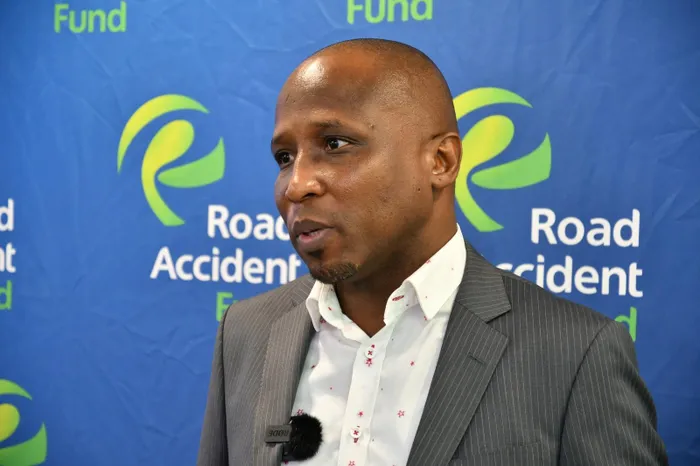RAF CEO suspension sparks claims of political pressure and legal intimidation
CONTENTIOUS SUSPENSION

Collins Letsoalo placed on special leave as CEO of the Road Accident Fund amid corruption allegations
Image: Supplied
Road Accident Fund CEO Collins Letsoalo did not appear in parliament yesterday following a late cancellation.
Letsoalo had ignited a firestorm in Parliament, revealing what appears to be a power struggle fraught with political interference and legal intimidation.
The unfolding saga came to light during a tense sitting of the Portfolio Committee on Transport, where Letsoalo’s controversial removal and public testimony drew both criticism and concern from across the political spectrum.
Letsoalo was suspended by the RAF Board on allegations of insubordination after he allegedly failed to appear before the Standing Committee on Public Accounts (Scopa).
However, the timing and manner of his suspension have raised eyebrows, particularly after Letsoalo revealed he had previously spoken out against what he termed “thuggish lawyers” acting in RAF matters.
The Deputy Minister of Transport, Mkhuleko Hlengwa, confirmed to the committee that he had only been informed of Letsoalo’s suspension during a meeting with the RAF board the day before. Hlengwa expressed deep concern about the instability at the RAF, urging members to handle the matter with care.
“The situation at RAF is not good,” he said, warning of serious consequences if matters are handled recklessly.
Letsoalo’s suspension appears to have been communicated to him during the Scopa meeting itself, a move he says blindsided him.
According to Letsoalo, he received a message from the board chairperson instructing him to check his email, where he then found a letter of suspension.
The same board had previously placed him on special leave, only to withdraw that and proceed with suspension days later.
In his affidavit to the High Court, Letsoalo insists that his suspension is not a labour matter but a legal one. “I do not claim the conduct of the respondents constitutes unfair labour practice,” he stated. “My suspension was unlawful, irrational, and unreasonable.”
Letsoalo’s legal action also seeks to retain his security detail, arguing that he has faced credible threats to his life during his tenure. He cited a violent incident at the RAF offices in Centurion last year when armed men tied up security personnel while demanding to see him.
The attack was reportedly orchestrated by an individual in prison, prompting a police investigation and a recommendation from crime intelligence for enhanced personal protection. In his court submission, Letsoalo emphasised the seriousness of the threat.
“This is a matter of life and death. If I return the RAF security vehicles and personnel, I and my family will be placed in harm’s way.”Sources close to the matter suggest that Letsoalo’s efforts to root out corruption and confront legal irregularities within the RAF — particularly his criticisms of a network of lawyers with lucrative claims — may have made him a target. Letsoalo had previously accused some legal practitioners of acting in a manner detrimental to the fund and the public it serves.
The Democratic Alliance (DA), however, sharply criticised the Chairperson of the Portfolio Committee for allowing Letsoalo to speak during the session.
The party staged a walkout, accusing the African National Congress (ANC) and allied parties of turning the committee into a “political circus.” In a strongly worded statement, DA MP Thami Mabhena said, “This incident was not about transparency. It was about protecting vested interests and frustrating accountability.”
Letsoalo, whose contract ends in August, argues that if the court does not act urgently, his reinstatement may become moot. His application for urgent relief also contends that ongoing political pressures and legal manoeuvres may be aimed at sidelining him permanently.
What is clear is that the RAF is no longer just a state insurer in financial distress. It is now the epicentre of a battle that involves not only governance but also questions of power, protection, and political will.
As Parliament seeks answers, the story of Collins Letsoalo may be a litmus test for how far South Africa is willing to go to protect whistleblowers and uphold accountability in public institutions.